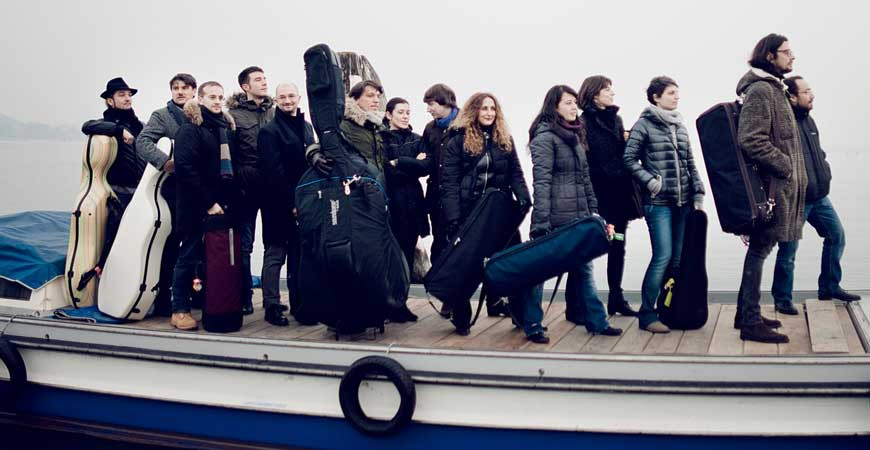
5 January 2019, 19.30-21.00
Grand Hall
Pure Baroque
Emőke Baráth & Il Pomo D'Oro  Presented by Liszt Academy
Presented by Liszt Academy
La Veneziana – Barbara Strozzi and Her Masters
Strozzi: Diporti di Euterpe ovvero Cantate e ariette a voce sola, op. 7 – Lagrime mie
Marini: Affetti Musicali, Op.1 – 1. La Zorzi
Strozzi: Mi fa rider la speranza
Cesti: Speranza ingannatrice
Merula: Canzoni overo sonate concertate per chiesa e camera (book 3), Op. 13 – Ballo detto Eccardo
Strozzi: Cantate, ariette e duetti, Op. 2 – 4. Sul Rodano severo
intermission
Strozzi: Arie a voce sola, Op. 8 – 6. Che si può fare
Cavalli: Excerpts from Statira principessa di Persia – Sinfonia, Alba ch'imperli i fiori; Cresce, cresce il foco
Marini: Sonata sopra „Fuggi dolente core”, op. 22/21
Strozzi: Ariette a voce sola Op. 6 – 16. Chi brama in Amore
Cavalli: „Vanne intrepido o mio” – Excerpt from Statira principessa di Persia
Emőke Baráth (soprano)
Il Pomo d'Oro
Conductor and harpsichord player: Francesco Corti
Although one of the first composers to be known by their first name was a woman (Hildegard von Bingen), men continue to dominate mainstream composition to this day. If one were to ask people in the street to name a few female composers, the majority would be unable to give a single example, irrespective of music genre. It is no secret that the January programme of the youthful albeit world-famous Hungarian soprano Emőke Baráth and Il Pomo d’Oro early music ensemble aims to change this lamentable state of affairs. In terms of numbers, prior to the second half of the 20th century most registered female composers were active in the 17th century and early 18th century. Italian Humanism was certainly more tolerant of the artistic ambitions of women than the later bourgeois world. The best-known female music composer of the 1600s was Barbara Strozzi, daughter of Venetian poet Giulio Strozzi; her songs, madrigals and cantatas speak of the influence of her teacher Francesco Cavalli, a student of Monteverdi.
The concert is followed by CODA – which is an informal conversation with the performers.
Presented by
Liszt Academy Concert Centre
Tickets:
HUF 3 700, 5 100, 6 500, 7 800, 8 600


